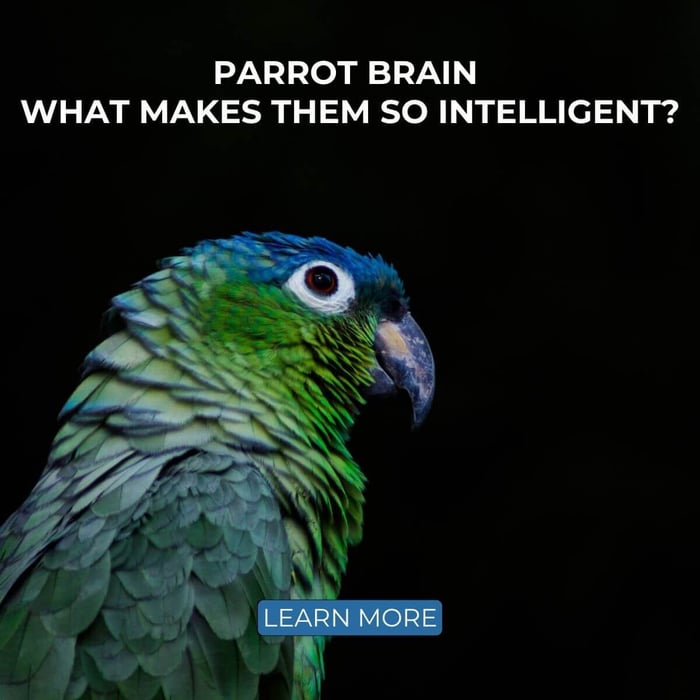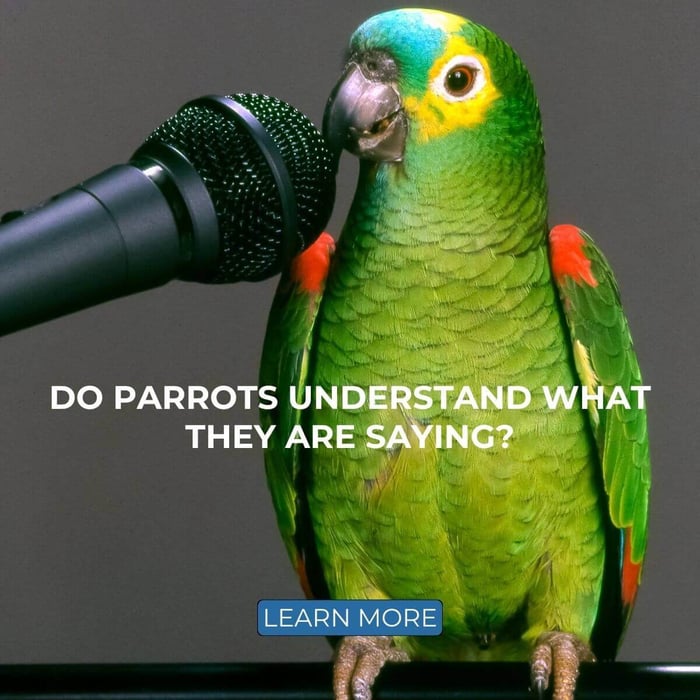Alex the African Grey Parrot – Smarter Than Average Four-Year-Old
In 1977, the pet shop scene might not have seemed like a pivotal moment for scientific history, but that’s exactly where it began. Animal psychologist Irene Pepperberg walked into a pet store with the intention of buying a parrot. Little did she know that her purchase, Alex, the African grey parrot, would become one of the most significant contributors to our understanding of avian intelligence.
The Early Days of Alex the African Grey
Alex, whose name stands for Avian Learning Experiment, was a one-year-old African grey parrot when Pepperberg acquired him. The decision was serendipitous; the store clerk randomly selected Alex from the stock, setting the stage for groundbreaking research. Pepperberg, intrigued by the possibility that parrots could possess cognitive abilities similar to those of humans, embarked on a journey that would span three decades.
From the moment Alex entered Pepperberg’s life, it became clear that he was no ordinary parrot. Alex was not just a pet; he was a research subject whose abilities would challenge and expand our understanding of animal cognition. His life’s work demonstrated that African grey parrots are capable of understanding complex abstract concepts and exhibit intellectual capabilities that rival those of young children.
Alex’s Intellectual Milestones
Throughout his life, Alex the African Grey achieved several milestones that showcased his impressive cognitive abilities. By the time of his death in 2007, Alex could identify 50 different objects, recognise quantities up to six, and distinguish between seven colours and five shapes. He understood concepts such as "bigger," "smaller," "same," and "different" and was even learning more complex ideas like "over" and "under."
Perhaps most remarkable was Alex's ability to use language creatively. He had a vocabulary of over 100 words and demonstrated an impressive level of linguistic flexibility. For example, when Alex encountered an apple for the first time, he coined the term "banerry"—a blend of "banana" and "cherry," two fruits he was already familiar with. This creative use of language not only illustrated his grasp of abstract thinking but also his ability to apply known concepts to new situations.
Alex’s ability to count was another testament to his intelligence. His capacity to understand and communicate quantities showed that his cognitive skills extended beyond mere mimicry. One notable incident underscored his frustration and persistence: When researchers gave him a nut instead of the banana he requested, Alex responded by throwing the nut back and repeating his demand for a banana. This behaviour highlighted not only his communicative skills but also his ability to express dissatisfaction and insist on his needs being met.
Media Attention and Legacy

Alex the African Grey garnered significant media attention during his lifetime. His achievements were covered extensively, and he appeared in numerous television features that showcased his remarkable intelligence. The public was fascinated by the idea that a parrot could possess cognitive and linguistic abilities on par with a young human child.
Despite his accomplishments and growing fame, Alex's life was tragically cut short. He passed away suddenly in 2007 at the age of 31, which was only half of his expected lifespan. Researchers attributed his early death to heart disease, a sombre reminder of the fragility of life, even for the most extraordinary beings.
Alex’s final words, spoken to Pepperberg every night before bed, were a poignant testament to their bond: "You be good, see you tomorrow, I love you." These words encapsulated the deep connection between the parrot and his researcher, highlighting the emotional and intellectual relationship they shared.
The Alex Foundation and Continued Impact
In the wake of Alex’s death, Pepperberg established The Alex Foundation, a nonprofit organisation dedicated to continuing the research and legacy of Alex the African Grey. The foundation aims to deepen our understanding of parrot cognition and to improve the lives of parrots worldwide through preservation efforts and educational initiatives.
The mission statement of The Alex Foundation underscores its commitment to the scientific and ethical treatment of parrots: "Through these efforts, The Alex Foundation, and the memory of Alex, will live on and will accomplish its mission to improve the lives of all parrots worldwide." The foundation’s work encompasses both advancing scientific knowledge and enhancing the welfare of parrots, ensuring that Alex’s legacy contributes to meaningful change in the field of avian research.
The Broader Implications of Alex’s Intelligence

The research surrounding Alex the African Grey has far-reaching implications for our understanding of animal intelligence. Alex’s abilities challenge long-standing assumptions about the cognitive capabilities of non-human animals and offer valuable insights into the complexities of avian minds.
One of the key takeaways from Alex’s research is the notion that intelligence is not exclusive to humans or even primates. The sophisticated cognitive abilities demonstrated by Alex suggest that parrots, and potentially other avian species, possess a level of intelligence that warrants further exploration and appreciation. This realisation has implications for how we approach animal welfare, conservation, and our interactions with various species.
The study of Alex and other intelligent animals also raises important questions about the nature of consciousness and the potential for non-human beings to experience emotions, thoughts, and understanding in ways that are similar to humans. As research continues, Alex’s story serves as a compelling reminder of the rich inner lives of animals and the need to respect and protect their cognitive and emotional well-being.
Conclusion
Alex the African Grey was more than just a remarkable parrot; he was a trailblazer in the field of animal cognition. His impressive intellectual achievements, combined with his unique ability to communicate and interact with humans, have left an indelible mark on the scientific community and the general public.
Through his life’s work and the ongoing efforts of The Alex Foundation, Alex’s legacy endures as a beacon of understanding and compassion for avian species. His story challenges us to reconsider our assumptions about animal intelligence and encourages us to foster a greater appreciation for the remarkable capabilities of the creatures with whom we share our world.
In remembering Alex the African Grey, we honour not only his extraordinary contributions to science but also the profound connection between humans and animals. His legacy continues to inspire and educate, reminding us of the incredible potential that lies within all living beings.




